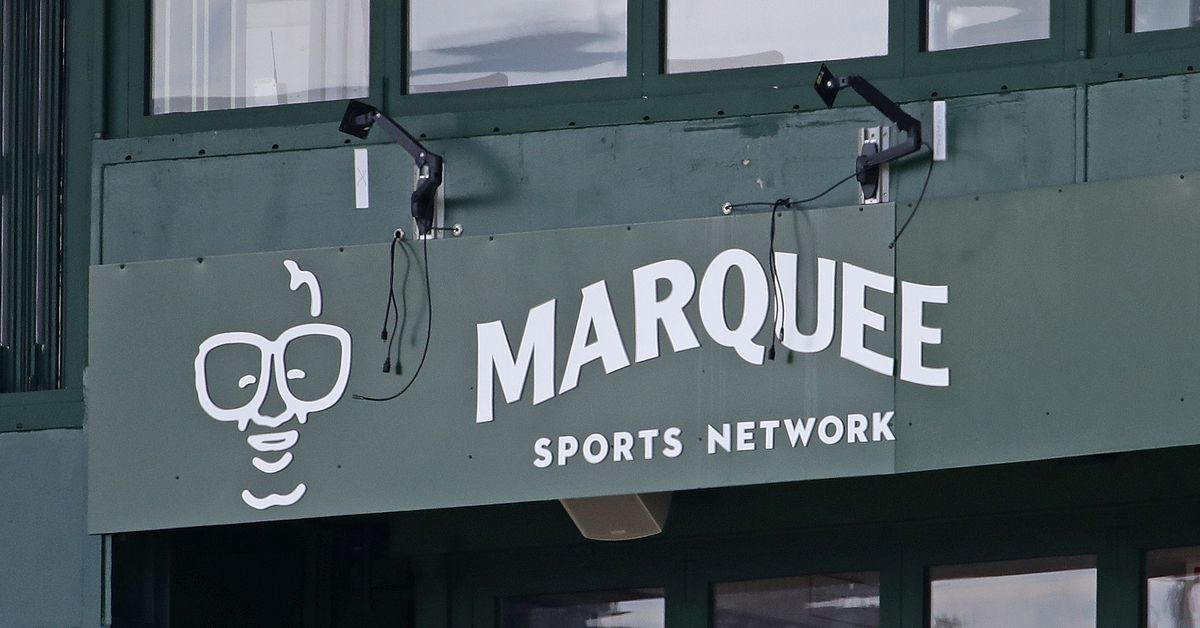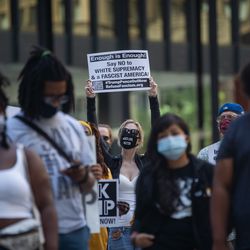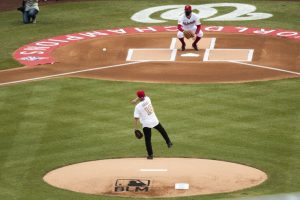In the negotiating equivalent of the bottom of the ninth inning, Cubs president of business operations Crane Kenney predicted Thursday he would nail down a deal with Comcast in time to allow Cubs fans to watch the home opener Friday night against the Brewers on Marquee Sports Network.
Kenney said he’s determined to finalize carriage agreement with the Chicago area’s largest cable provider, even if he has to work through the night and up until the last minute.
When the Cubs launched their own network, Kenney said there were two groups of distributors: Those who jumped on the bandwagon early, such as AT&T and DirectTV, to assure their customers they would carry Cubs games, and those who chose to hold out in hopes of negotiating better terms.
“This has been a pattern — not just with our station, but with stations all over the country,” Kenney told the Chicago Sun-Times. “Unfortunately for our fans, it has been something that, from Day 1, was gonna be the m.o. for Comcast to hold out until the very last moment.”
“I expect the games to be on Comcast … in time for opening day. Our conversations — the pace of those — picked up right after we received an agreement with the players to come back and start playing this year. … Issues that remain unresolved will be resolved in time …This has been the case back to my days at WGN. … The Cubs opener has been the catalyst for a lot of deals to get done in my lifetime. And I believe it will be the catalyst to get our deal with Comcast done.”
The monthly fee will be “whatever Comcast elects to charge” its customers, Kenney said. The Cubs have “rates that vary based on your geographic location with Comcast,” but ultimately it’s “their decision how much they want to pass through to subscribers.”
What happens if Kenney is wrong and a deal does not get done in time for opening day?
“Certainly not having carriage on the dominant provider in the market would be a huge negative for our fan base,” Kenney said.
“Then our fans would have to move their service to one of a dozen other services that are available, including DirectTV and AT&T. It would be a major dislocation. And as we all know, changing your television service is not easy. It’s a nuisance. It would be very difficult for our fan base to have to go through that,” Kenney said.
To maintain a connection with die-hard Cubs fans at a time when they’re not allowed in the stands, the team has agreed to collect foul balls during the 30 games at Wrigley and ship each one to the season ticket holder with the seat closest to where it landed.
Friday night’s game will feature a moment of silence and solidarity with the Black Lives Matter movement, virtual pitches by Gov. J.B. Pritzker and Mayor Lori Lightfoot and an actual first pitch by Cubs Hall of Famer Ryne Sandberg. Health care workers on the front lines of Chicago’s war against the coronavirus will also be honored.
Still, it will be an opening day like no other, Kenney said.
“Typically on opening day, we’ve got one eye on, most likely a snowstorm moving east and worrying about weather. And we’re also [normally] keeping a close eye on 41,000 people coming into the ballpark. That’s also not happening this year,” Kenney said.
“Starting the season in the middle of the summer without fans is certainly not something I thought I’d ever see.”
The Cubs are going to great lengths to enhance what Kenney called the “home experience” and come as close as possible to duplicating the “audible energy you get from the fans in the ballpark.”
“We have mics buried around the ballpark. You’ll be hearing more of the players this year — one, because the crowd noise is gonna be lower, and second, is because we’ve put some mics in some unusual locations near the bases,” Kenney said.
“It’s important for there to be some level of crowd noise in the ballpark. If there weren’t, hitters could sense the catcher moving behind them and potentially get an advantage as a catcher receives a pitch. So the league has mandated that every club insert at least one decibel level of crowd noise. We’ve stripped out some of the audio tracks from prior games, sounds that are really peculiar to Wrigley Field, and dropped those into the master track. We’ll also be using the organ extensively. We’re trying to create an experience that will feel at home. We miss the fans, though. There’s no replacing the energy they bring to the ballpark.”



















